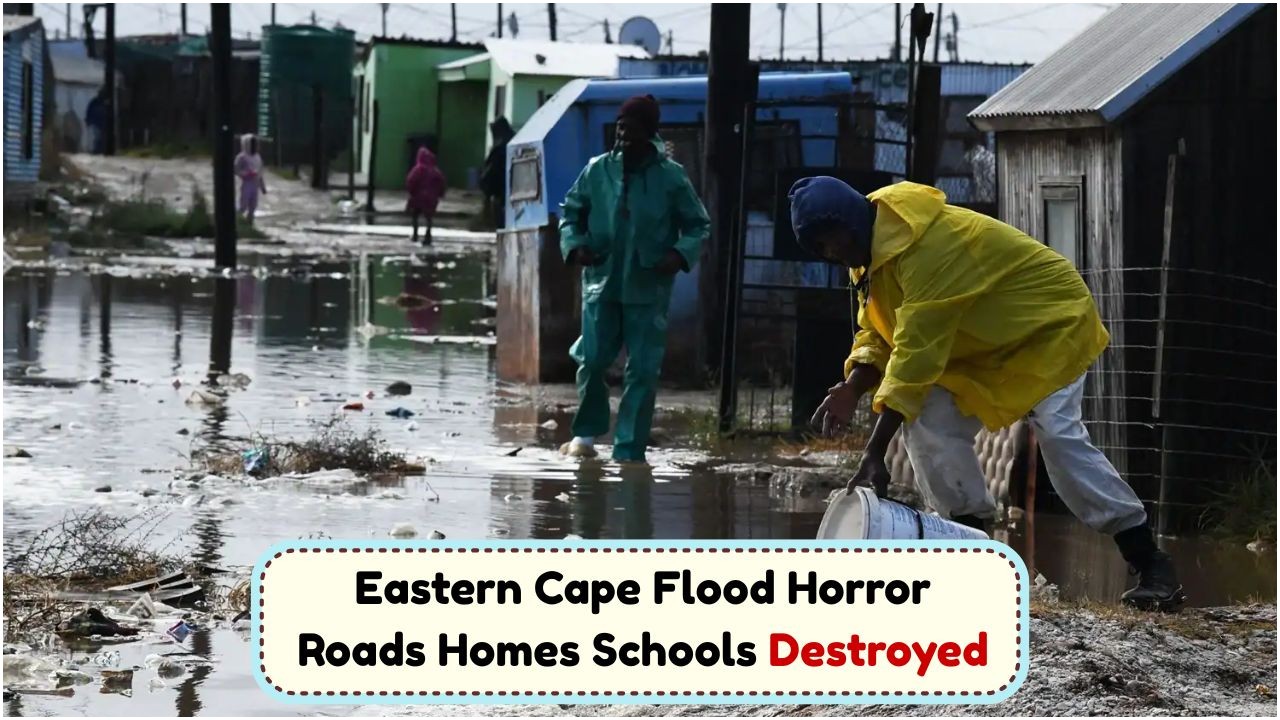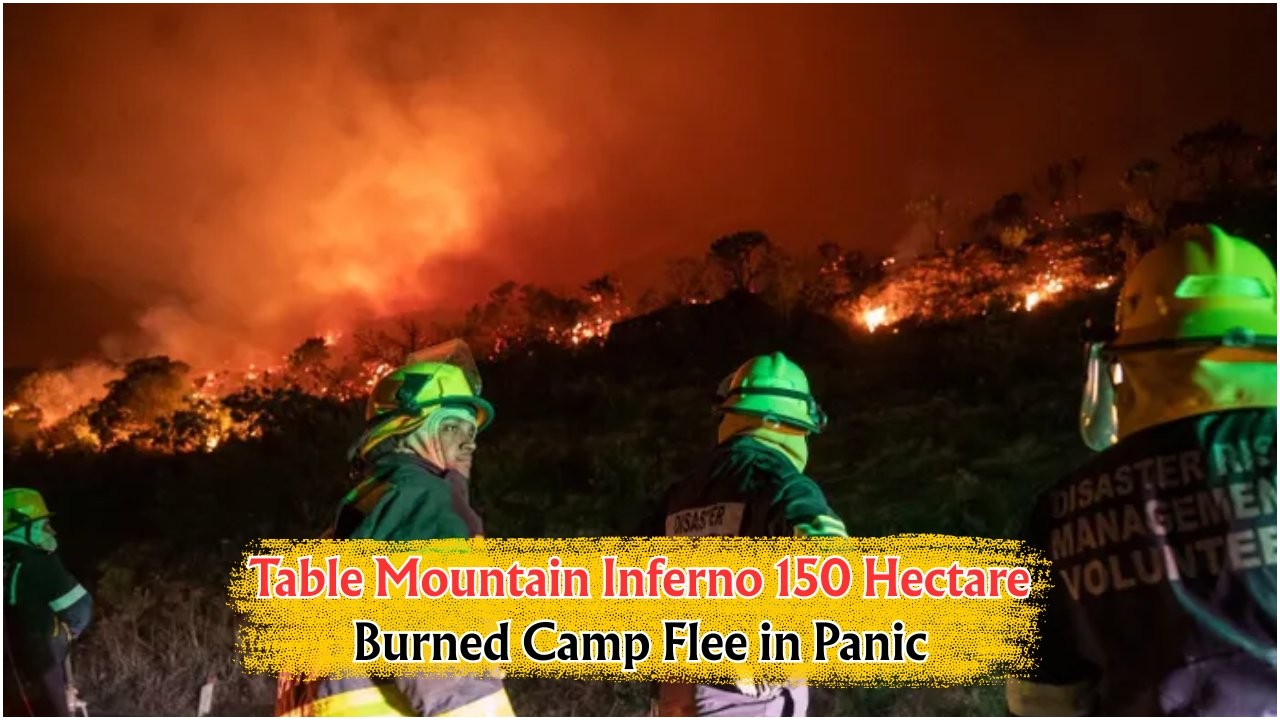June 2025 Devastation: Eastern Cape Floods Claim 103 Lives, Destroying Roads and Homes: The Eastern Cape province of South Africa has been ravaged by unprecedented floods in June 2025, leading to a tragic loss of 103 lives. This natural catastrophe has not only claimed lives but has also wreaked havoc on infrastructure and homes, leaving countless families displaced. The devastating effects of the floods have brought communities to a standstill, with roads rendered impassable and entire neighborhoods submerged. Government and humanitarian agencies are working tirelessly to provide aid and support to those affected, but the road to recovery is long and complex. As the people of Eastern Cape grapple with the aftermath, the nation stands in solidarity, offering assistance and resources to help rebuild what was lost.
Impact on Eastern Cape Infrastructure
The floods in June 2025 have severely impacted the infrastructure of Eastern Cape, causing widespread destruction. Roads have been washed away, bridges collapsed, and essential services disrupted. The transportation network has been particularly hard hit, making it difficult for emergency services to reach affected areas. With major highways and rural routes submerged, the movement of goods and supplies has come to a halt, further compounding the challenges faced by residents and relief workers alike. This disaster serves as a stark reminder of the vulnerability of infrastructure to extreme weather events and the need for resilient systems that can withstand such natural calamities.
- Major highways submerged
- Bridges collapsed
- Disrupted essential services
- Inaccessible rural routes
- Halted movement of goods
- Emergency response delays
- Increased repair costs
- Long-term recovery efforts
Humanitarian Response to the Eastern Cape Floods
In the wake of the June 2025 floods, humanitarian organizations have mobilized swiftly to provide relief and support to the affected communities in Eastern Cape. These efforts include setting up temporary shelters, distributing food and water supplies, and offering medical assistance to those in need. The South African government, along with international partners, has pledged significant resources to aid in the recovery and rebuilding process. Volunteers from across the country have joined hands to assist in relief operations, demonstrating the resilience and solidarity of the South African spirit in times of crisis.
| Organization | Support Offered |
|---|---|
| Red Cross | Emergency shelters and food |
| Doctors Without Borders | Medical assistance |
| South African Government | Financial aid and resources |
| Local NGOs | Community support and rebuilding |
| International Aid | Technical and logistical support |
| Volunteer Groups | On-ground assistance |
| Religious Organizations | Spiritual and emotional support |
| Corporate Sector | Donations and resources |
Challenges in Rebuilding Eastern Cape
The road to recovery for Eastern Cape in the aftermath of the June 2025 floods is fraught with challenges. The scale of destruction has overwhelmed local governments and agencies, requiring coordinated efforts to rebuild infrastructure and restore normalcy. Funding constraints pose a significant hurdle, as the cost of reconstruction far exceeds available resources. Moreover, the psychological impact on the affected communities is profound, with many individuals coping with the loss of loved ones and homes. Long-term planning and investment in resilient infrastructure are essential to prevent future catastrophes and build a sustainable future for Eastern Cape.
- Funding constraints
- Coordination challenges
- Psychological impact on communities
- Reconstruction of housing
- Restoration of public services
- Future flood mitigation strategies
Lessons Learned from the June 2025 Floods
The catastrophic floods in Eastern Cape have underscored the importance of preparedness and resilience in the face of natural disasters. Key lessons learned include the need for effective early warning systems, robust disaster management plans, and community education on emergency response. The role of technology in disaster prediction and response cannot be overstated, as real-time data and communication tools have proven invaluable in coordinating relief efforts. Additionally, the floods have highlighted the significance of environmental conservation and sustainable urban planning to mitigate the impacts of climate change-induced weather events.
- Effective early warning systems
- Robust disaster management plans
- Community education and awareness
- Role of technology in disaster response
- Environmental conservation
Future Preparedness for Eastern Cape
In light of the June 2025 floods, future preparedness for Eastern Cape requires a multifaceted approach. Investments in climate-resilient infrastructure, comprehensive flood management systems, and enhanced community preparedness programs are crucial. Collaboration between government, private sector, and civil society will play a pivotal role in building a resilient Eastern Cape that can withstand future natural disasters. The integration of traditional knowledge with modern technology will ensure sustainable and effective disaster management strategies, safeguarding lives and livelihoods in the region.
- Climate-resilient infrastructure investments
- Comprehensive flood management systems
- Enhanced community preparedness programs
- Government and private sector collaboration
- Integration of traditional knowledge and modern technology
FAQ Section
| Question | Answer |
|---|---|
| What caused the June 2025 floods in Eastern Cape? | The floods were caused by unprecedented rainfall and severe weather conditions. |
| How can communities prepare for future floods? | Communities can prepare by participating in disaster management drills and staying informed about weather alerts. |
| What assistance is available for flood victims? | Various organizations provide emergency shelters, food, medical aid, and financial support to flood victims. |
| How long will the recovery process take? | The recovery process may take several months to years, depending on the extent of damage and availability of resources. |
| Are there any prevention measures being implemented? | Authorities are working on flood management systems and infrastructure improvements to prevent future disasters. |







